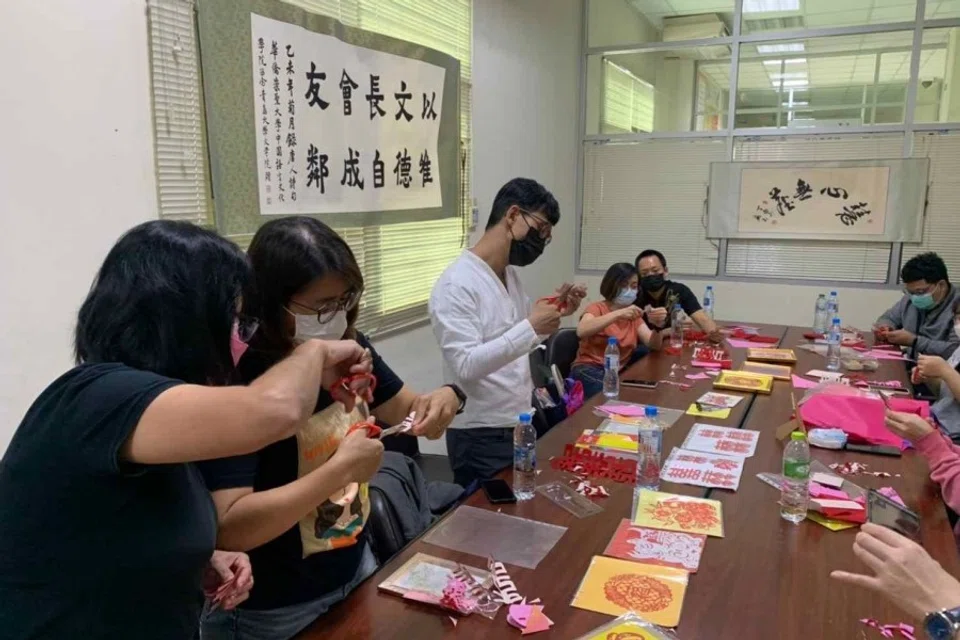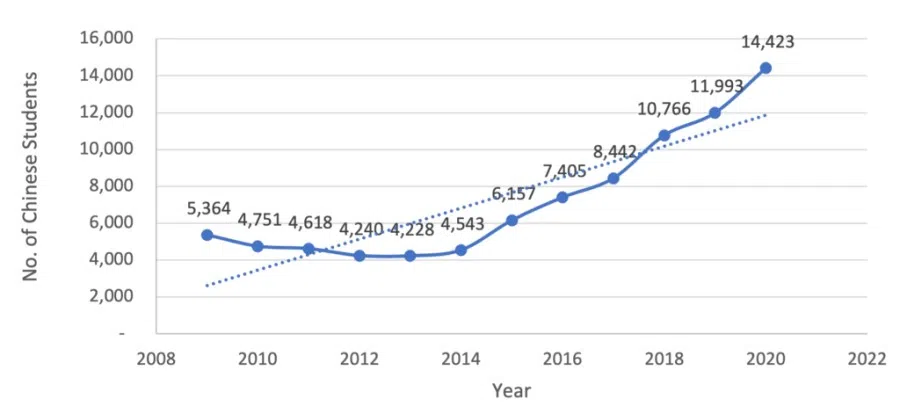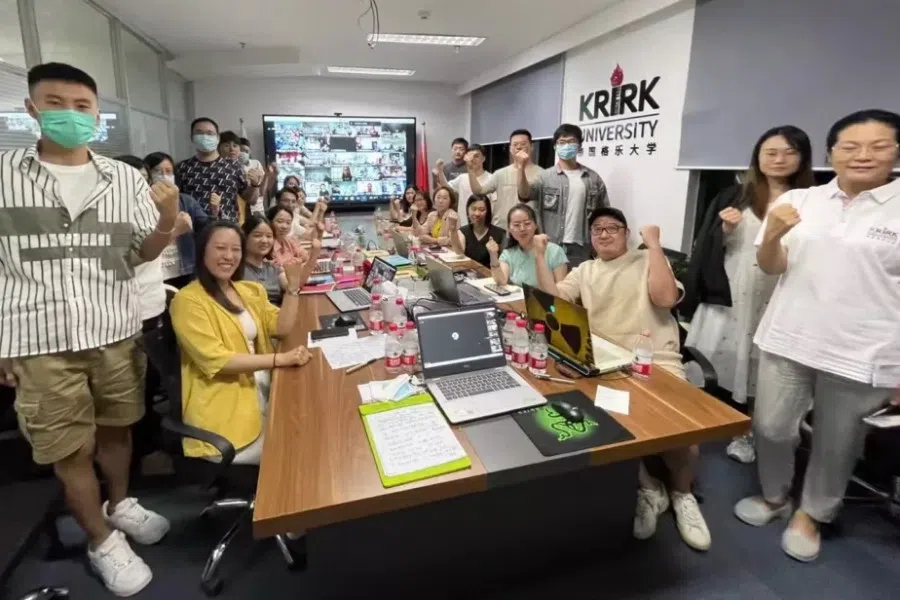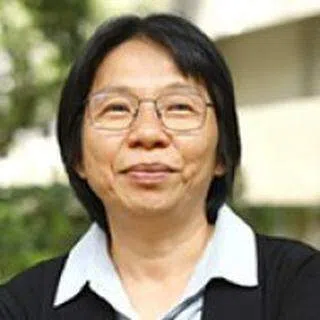Rising Chinese student enrolment in Thailand: Cash cows at a cost
Thailand is reaping the benefits of a steady stream of Chinese students choosing Thailand as its destination of choice for university studies, particularly at its private universities. The trend, however, is not cost-free. There are a host of problems it has to grapple with, including possibly compromised academic standards as well as suspicions of Chinese students flouting their visa conditions by engaging in full-time business activities.

The number of Chinese students enrolled in Thai universities has been on the rise. While Chinese students have varied reasons for picking Thailand, Thai universities have their own reasons for admitting them.
The Thai government clearly wants to capitalise on this trend, which would boost the Thai economy and burnish the country's credentials as an "educational hub" for international students. However, there are a host of problems it has to grapple with, namely compromised academic standards and Chinese students flouting their visa conditions.
According to Thailand's Office of the Higher Education Commission (OHEC), the number of Chinese students choosing Thailand for their tertiary education has been rising in recent years. In 2009, Thai universities hosted 5,364 Chinese students. In 2020, the number had tripled to 14,423. Between 2018 and 2022, 7,231 Chinese students graduated from Thailand's higher education institutes.
The majority of the Chinese students prefer universities in the West, in countries such as Australia, the UK and the US. In Asia, Thailand -together with Japan and Singapore - count among the top choices for Chinese students.
Chinese funds ringing universities' cash registers
Thailand is a destination of choice for a variety of reasons. Many of the Chinese students that enrol are those that had failed the gaokao or national university entrance exams in China, and as a result, are forced to explore overseas universities.
In 2018, 9.7 million Chinese pupils signed up for the gaokao, but only 500,000 students were admitted. Hence, around 9.2 million students were left to struggle to find university placements.
Based on our interviews with Chinese students studying in Thailand, the majority come from largely rural provinces in southern China, such as Yunnan, Guangxi, Guangdong and Sichuan. The students are typically funded by their parents, and chose Thailand as the first choice for their higher education so that their kids could escape the pressures and anxiety of gaokao.
Chinese students are seen as a means to prop up their revenue, given that foreign students in general pay three times more in tuition fees than Thai students.
In their view, there are several factors in Thailand's favour. Namely, Thailand has a lower cost of living compared to many Western countries. Students also feel safer staying in Thailand, as there is less risk of xenophobia, cultural bias and discrimination compared to the US and other Western countries.
Thailand is also viewed as a potential place to live and work after graduation, with job opportunities created from increasing economic, social and cultural cooperation between China and Thailand within the framework of ASEAN and the Belt and Road Initiative.

For Thai universities, Chinese students are seen as a means to prop up their revenue, given that foreign students in general pay three times more in tuition fees than Thai students. In 2020, almost three-quarters of Chinese students in Thailand were enrolled in private universities. The top five options are institutions based in Bangkok: Dhurakij Pundit University, Assumption University, Huachiew Chalermprakiet University, University of the Thai Chamber of Commerce, and Krirk University. Only 4,340 Chinese students enrolled in state universities across Thailand.
In 2020, Chinese students enrolled in Thai universities accounted for 51.3% of the foreign student population
Generally, most Thai private universities seek to bring in more revenue and improve their international reputation by taking in more foreign students. In recent years, however, this has led to a disproportionately high number of Chinese students.
In 2020, Chinese students enrolled in Thai universities accounted for 51.3% of the foreign student population - a 3% increase from 2019. The Chinese student market also serves as a substitute for declining Thai student enrolment.
The steady Chinese demand for Thai university places has prompted private Chinese investors to take a bite of Thailand's education sector. For several years, many private universities have utilised Chinese agents to provide education guides to prospective students. Some private universities have also partnered with Chinese education investors to launch attractive international programmes. Krirk University, Dhurakij Pundit University and Stamford International University are examples where undergraduate degree courses are offered to meet the Chinese students' demand.

Thailand's reputation as an international "education hub" may be affected if the academic calibre of students admitted and education industry standards are not maintained.
Popular programmes offered by some private universities include business administration, finance and accounting, and international business management. Although these international programmes are supposed to be taught in English, the language of instruction has morphed into a mix of Chinese, English and Thai to help students struggling with the language barrier.
While logical, this has come at a cost. Some Chinese students have complained that the courses are not taught properly and high grades are issued a tad too freely. It is likely that these universities, in their thirst for yuan revenue, are compromising on academic standards.
Another matter of concern is the suspicion that some Chinese students enrolled as full-time students holding educational visas are engaging in full-time business activities. This is an offence under immigration laws.
Given these issues, the Thai government is starting to keep an eye on Thai private universities to ensure that education standards are maintained and the quality of educational management assured under the Private Institution of Higher Education Act (2003) and the National Education Guidelines. The issue of quality is not only a Thai concern, but also a concern for China as it is in the state's interest to protect its students.
Rising Chinese student enrolment in Thailand bodes well financially for private universities. In the long run, however, Thailand's reputation as an international "education hub" may be affected if the academic calibre of students admitted and education industry standards are not maintained.
This article was first published by ISEAS - Yusof Ishak Institute as a Fulcrum commentary.


![[Big read] Paying for pleasure: Chinese women indulge in handsome male hosts](https://cassette.sphdigital.com.sg/image/thinkchina/c2cf352c4d2ed7e9531e3525a2bd965a52dc4e85ccc026bc16515baab02389ab)


![[Big read] How UOB’s Wee Ee Cheong masters the long game](https://cassette.sphdigital.com.sg/image/thinkchina/1da0b19a41e4358790304b9f3e83f9596de84096a490ca05b36f58134ae9e8f1)
